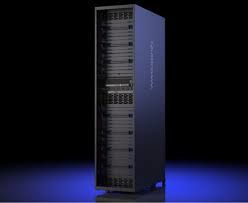Qualcomm has made a significant leap into the data center market with the introduction of its new AI200 and AI250 chips, alongside rack-scale server offerings. This strategic move has driven Qualcomm's stock to soar more than 20% in a single day, showcasing the market's positive reaction to the company's ambitions.
By entering the data center space, Qualcomm is setting itself up for direct competition with established players like Nvidia and AMD. The decision to venture into this sector highlights Qualcomm's determination to secure a share of the lucrative data center industry, which presents immense growth potential and opportunities for innovation.
Scheduled for release starting in 2026, the AI200 chip, along with its accompanying server rack featuring a Qualcomm CPU, marks the beginning of Qualcomm's foray into data center hardware. Following closely, the AI250 chip and server, set for 2027, promise even more advanced AI capabilities. This annual product development cadence signals Qualcomm's commitment to continuously improving its offerings to meet evolving market demands.
Qualcomm's reliance on its custom Hexagon NPU technology in the AI200 and AI250 chips underscores the company's dedication to leveraging its existing strengths in neural processing units. The company's experience in integrating NPUs into its Windows PC chips has provided valuable insights that are now being scaled up for data center applications.
One of Qualcomm's key selling points for its new chips and servers is their low power consumption, which translates into a lower total cost of ownership for customers. Specifically designed for AI inference tasks rather than AI model training, Qualcomm's offerings cater to the increasing focus on operational efficiency and cost-effectiveness in the data center industry.
While the AI200 and AI250 are aimed at dedicated AI systems, Qualcomm emphasizes flexibility for customers by offering individual chip purchases, partial server configurations, or complete setups. This approach allows for customization based on varied customer needs, enabling widespread adoption across diverse industry players.
Qualcomm's previous attempts at entering the data center market faced challenges, such as the unsuccessful Qualcomm Centriq 2400 platform collaboration with Microsoft in 2017. However, the company's current focus on dedicated AI systems marks a strategic shift in its product strategy, aligning with the broader industry trend towards AI-centric infrastructure solutions.
With Qualcomm's traditional revenue sources predominantly tied to smartphone chips and licensing, the expansion into data center hardware represents a crucial diversification strategy aimed at reducing dependence on existing market segments. The company's Q3 revenue figures highlight the significance of this strategic shift towards new growth opportunities beyond the smartphone market.
In the highly competitive data center landscape dominated by industry giants like Amazon, Google, Microsoft, Nvidia, and AMD, Qualcomm faces significant challenges in establishing its foothold. Critical factors, such as the trend towards in-house AI chip development by major cloud providers, further intensify the competition, requiring Qualcomm to differentiate its offerings to gain market traction.
Overall, Qualcomm's entry into the data center market signifies a bold step towards diversification and innovation, positioning the company to tap into the immense potential of the AI-driven infrastructure landscape. As the market evolves and competition intensifies, Qualcomm's success will hinge on its ability to deliver unique value propositions and drive adoption among key industry players seeking cutting-edge data center solutions.

